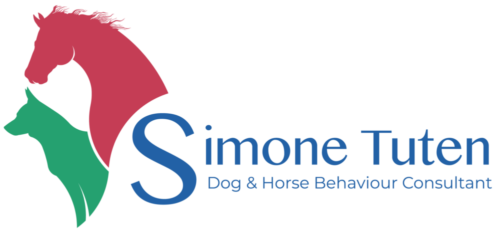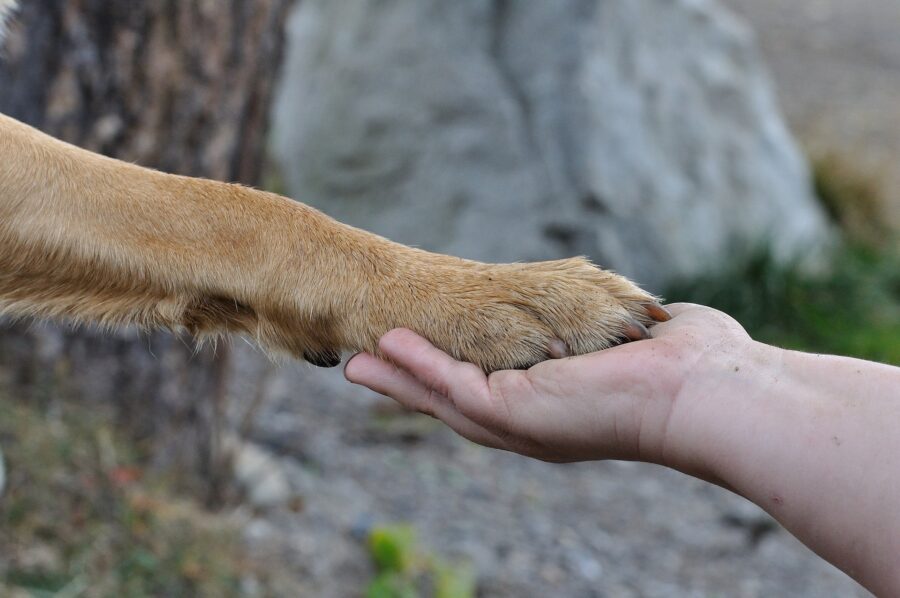Finding an appropriately skilled and knowledgeable dog trainer or behaviour consultant to help you can be difficult.
Dog training and dog behaviour consulting are unregulated industries in Australia (and most places internationally). That means anyone can say they are a trainer or a behaviour consultant. This is an industry where you really do need to do your research.
Some trainers will say they are qualified, others certified, others will rely on competition results and experience. So how do you choose? Which qualification or certification is best for your dog and situation? What’s the difference between a qualification and a certification?
I’ll help you answer these questions in the rest of this article.
There are 3 broad categories of qualifications and certifications available. I’ll explain these below.
Qualification
In Australia we have the Australian Qualifications Framework which is “the national policy for regulated qualifications in Australian education and training.” You can read more here
In the dog training world, the qualifications are delivered and assessed by TAFE or through Registered Training Organisations. Qualifications under the Australian Qualifications Framework are government quality assured and accredited by the Australian higher education or vocational education and training accreditation authorities.
These qualifications include the Certificate III or IV in Companion Animal Services. TAFE, Delta and NDTF offer these qualifications (although check the Training Organisations are current and accredited to deliver those qualifications – you can check via this government website.
Note of these TAFE (in WA) and Delta are positive reinforcement, force free proponents. NDTF is ‘balanced’ i.e. they will use and support the use of aversives in dog training.
Certifications
I consider these to be ‘qualifications’ issued outside the Australian Qualifications Framework (or another countries equivalent framework).
I split certifications into two subcategories – independent certifications and dependent certifications.
Independent Certifications
Independent certification is the term I use to describe certifications issued by a body that is not dependent upon the applicant having completed their courses. Examples of independent international certification bodies are the:
Certification Council for Professional Dog Trainers
This organisation is a private not for profit organisation and is “a testing and certification resource for dog training and behaviour professionals”.
They “set the global standard for the development of rigorous exams to demonstrate mastery of humane, science-based dog training practices”.
They assess 3 certifications.
- CPDT-KA (Certified Professional Dog Trainer – Knowledge Assessed)
- CPKT-KSA (Certified Professional Dog Trainer – Knowledge and Skills Assessed)
- CBCC-KA (Certified Behavior Consultant Canine – Knowledge Assessed)
As of December 2020 there were 4489 CPDT-KAs and 177 CPDT-KSAs and 341 CBCC-KAs globally.
The assessment requirements for CPDT-KA and CPDT-KSA can be found here the assessment requirements for CBCC-KA can be found here
For example, the CPDT-KA which is one of the certifications I have required:
- “A minimum of 300 hours’ experience in dog training within the last 3 years
- Provide a signed attestation statement from a CCPDT certificant or a veterinarian”
- “The CPDT-KA exam consists of 180 multiple-choice questions”
- Professionals with these certifications must also adhere to strict standards of practice and code of ethics and least intrusive, minimally aversive (LIMA) effective Behavior Intervention policies in our practices.
International Association of Animal Behavior Consultants
This organisation does offer courses, but you do not need to have done any of them to be assessed.
It is “a certifying organization providing evidence-based education, professional development, and networking for animal behavior professionals and the public”
The IAABC “certifications are the most rigorous in the field”
For dogs the IAABC assesses for
- CDBC (Certified Dog Behavior Consultant)
- IAABC-ADT (IAABC Accredited Dog Trainer)
As of 1 March 2021 there are over 400 CDBC globally. The assessment requirements can be found here
For example, the CDBC which is one of the certifications I have required:
- “A minimum of four years and 500 hours of experience in animal behavior consulting
- 400 hours minimum of coursework, seminars and mentorships
- A working knowledge of learning theory, counterconditioning, desensitization, training, and husbandry, with additional in-depth knowledge of assessment skills and application of species-specific knowledge”
The application includes:
- Completion of questions regarding learning science and behavior consulting methods
- Written discussions of four scenarios
- Three written case studies that discuss client/pet cases of multiple sessions and are followed through to successful resolution.
- Pass score is 80% or higher in each section.
Dependent Certifications
Dependent certification is the term I use to describe certifications issued by a body at the completion of a courses. Examples of dependent certifications are the:
Karen Pryor Academy (KPA)
Victoria Stillwell Academy (VSA)
Centre of Applied Pet Ethology (COAPE)
Institute of Modern Dog Trainers (IMDT)
There are many dependent certifications around the world. The course content and assessment processes vary greatly and are not always clear on the websites.
Of the ones I have listed, the most common one in Western Australia is the IMDT. The IMDT Australia’s assessment according to their website is:
- “The full curriculum needed to be completed to gain your certification is the 2 day ‘Career As A Dog Trainer’ course, the 4 day ‘Practical Instructor’ course and the 2 day ‘Membership Assessment’ in which Trainers are practically assessed for Group Classes, Puppy Home Visits, One To One Sessions and Dog Training & Behaviour Knowledge”.
- “During the two day Assessment process, applicants will:
- Deliver a 20 minute outdoor lesson to a class of mixed ability dogs & handlers
- Deliver a 20 minute Puppy Home Visit and advise on a common ‘puppy problem’
- Deliver a 20 minute rescue dog practical 121 training session and prepare a follow-up report/email to the ‘owner’
- be asked to deliver a 20 minute oral, or 60 minute short answer written question & answer session with an IMDT Assessor.” You can read more about the assessment here
If you are still reading congratulations on your persistence. I hope that this summary helps shed some light on the different qualification and certifications available for dog trainers and behaviour consultants.
My hope is that this helps you make an informed decision on the qualifications or certifications you believe is best and necessary for your dog and situation.
As a general guide my recommendation is if you are looking for help with:
- behaviour look for a consultant with a CDBC (one of my certifications) or CBCC-KA or a behaviour veterinarian
- basic dog training look for someone with a certification or qualification which requires a decent amount of practical experience as part of the qualification or certification
- sports training look for someone ideally qualified or certified and with proven success (themselves as a competitor or people they have coached) in the competition area you are interested in
By the way – you may be wondering what’s the difference between a trainer and behaviour consultant? Here are some links to help you answer that question. If you are not sure if you need behaviour assistance or training feel free to send me a message and we can discuss.




